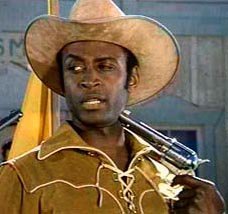The House Democrats have prepared a major report on Republican congressional corruption:
America for Sale: The Cost of Republican Corruption. The report was formally released by the ranking member of the House Rules Committee, Rep. Louise Slaughter. You can download the .pdf
here.
From the executive summary:
The United States Government used to belong to the people. Now it belongs to the highest bidders with the best Republican political connections. Congress is no longer a place where legislators work to make sure the government acts in the people's interest and uses taxpayers' dollars wisely. Instead, it has become a place where the Republican representatives who have the power to set Congress' agenda work to re-distribute as many of those taxpayers' dollars as possible to their special-interest friends in a massive "pay to play" scheme. It has become a place where the insurance and drug companies write our health care legislation, and the oil and mining industries write our energy policy.
For any news junkie, there's very little here that you won't already have heard about sometime during the last 5 years. What's stunning, though, is to see it lined up, end to end, one piece of sleaze after another.

This has it all, including the shady deals, the blocked amendments, the secret task forces, the hidden amendments, the sweetheart deals, the money changing hands, the golf games, the hookers, the embezzlers, and the government-subsidized titty bar
But for those who don't want to face down this 118-page pdf document in its entirety (as a frame of reference, though, my paperback copy of
Advise and Consent is 760 pages long),
p3 is happy to present the first installment of the
Republican Corruption Index: Health Care.
6.2 million
Number of eligible senior citizens overcharged or turned away at pharmacies because their names weren't transferred into the privately-administered Medicare "Part D" system.
__________
$150 million
State funds allocated by California to pay for prescription coverage for Californians who lost coverage under the privatized "Part D" plan.
__________
1
Number of the total 59 proposed amendments to the Republican-controlled House version of the Medicare "reform" bill that didn't get ruled "out of order."
__________
Less than 1
Number of days the Republican-controlled House allowed for debate on the entire Medicare "reform" bill.
__________
$13 billion
Amount Goldman Sachs predicted that the Medicare "reform" bill would increase profits annually in the pharmaceutical industry. (Another independent analyst put the figure at $139 billion over the next 8 years.)
__________
$2 million
Annual salary of former Commerce Committee Chair, Republican Billy Tauzin, responsible for writing the Medicare "reform" legislation, after he became a top lobbyist for the pharmaceutical industry.
__________
$134 billion
Difference between the cost of the Medicare "reform," as sold to Congress by the Bush Administration, and the actual projected cost, a figure known to the chief administration actuary who was threatened with firing if he didn't help conceal the higher-but-accurate figure from Congress.
__________
You can read Part 2, on energy policy,
here; Part 3, on national security,
here; Part 4, on employment and the economy,
here; and Part 5, on education,
here.

 Not that many people remember now--and too few gave it proper notice at the time--when Groucho Marx died, because he had the bad historical luck to die three days after Elvis. (You can look it up, at this
Not that many people remember now--and too few gave it proper notice at the time--when Groucho Marx died, because he had the bad historical luck to die three days after Elvis. (You can look it up, at this 
 Q: After I was scheduled for a job interview at a university, a member of the search committee Googled me and found my blog, where I refer to him (but not by name) as a belligerent jerk. He cancelled the interview. It was impolitic to write what I did, but my thinking him to be a jerk does not mean I would not be great at that job, and the rest of the committee might agree. Was it ethical of him to cancel the interview?
Q: After I was scheduled for a job interview at a university, a member of the search committee Googled me and found my blog, where I refer to him (but not by name) as a belligerent jerk. He cancelled the interview. It was impolitic to write what I did, but my thinking him to be a jerk does not mean I would not be great at that job, and the rest of the committee might agree. Was it ethical of him to cancel the interview? Oliphant pretty much seems to have captured the
Oliphant pretty much seems to have captured the  This has it all, including the shady deals, the blocked amendments, the secret task forces, the hidden amendments, the sweetheart deals, the money changing hands, the golf games, the hookers, the embezzlers, and the government-subsidized titty bar
This has it all, including the shady deals, the blocked amendments, the secret task forces, the hidden amendments, the sweetheart deals, the money changing hands, the golf games, the hookers, the embezzlers, and the government-subsidized titty bar Which is why I find a perverse satisfaction in the achievement of a group of privacy hackers in Germany: They've figured out how to cheaply and simply
Which is why I find a perverse satisfaction in the achievement of a group of privacy hackers in Germany: They've figured out how to cheaply and simply  Appreciative nod to
Appreciative nod to  But enough fretting and worrying: Tonight, after a long drought, we drink from the fire hose. Four new episodes--rumored (dammit!) to be among the best in AD's three-year run--shown back to back. It's sort of like celebrating swearing off by going on a binge--probably not the worst possible analogy for a show like this.
But enough fretting and worrying: Tonight, after a long drought, we drink from the fire hose. Four new episodes--rumored (dammit!) to be among the best in AD's three-year run--shown back to back. It's sort of like celebrating swearing off by going on a binge--probably not the worst possible analogy for a show like this.



 Groundhog's Day is an occasion for
Groundhog's Day is an occasion for  Apparently the Republicans, unable to abide the thought of any voting exercise untampered-with, and finding no other contests at hand to be jimmied, were driven to
Apparently the Republicans, unable to abide the thought of any voting exercise untampered-with, and finding no other contests at hand to be jimmied, were driven to  Apparently the Republicans, unable to abide the thought of any voting exercise untampered-with, and finding no other contests at hand to be jimmied, were driven to
Apparently the Republicans, unable to abide the thought of any voting exercise untampered-with, and finding no other contests at hand to be jimmied, were driven to